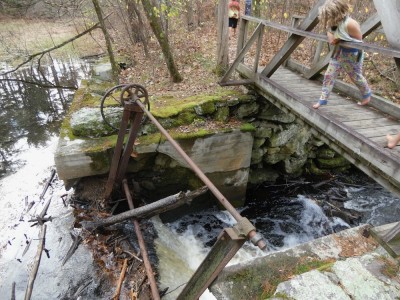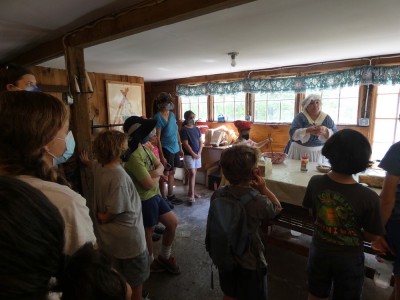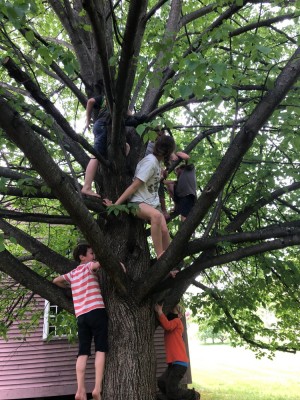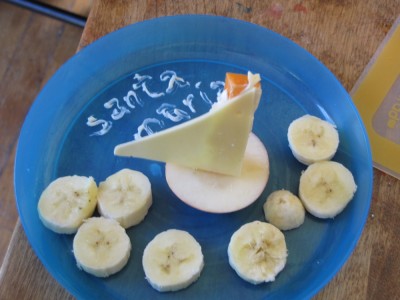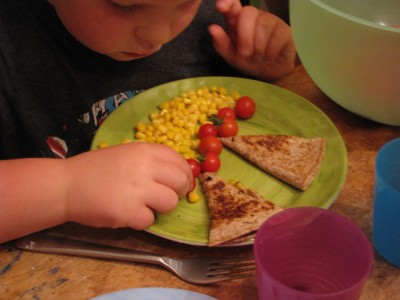posts tagged with 'history'
the depth of local geography and history
Sometimes we think about traveling the world, especially when looking at friends' pictures from Iceland. We will, someday. In the meantime though, there's still an infinity of places to explore around here. Case in point: on Saturday we were at Great Brook Farm State Park, where we've been hundreds of times, and found a new path that we'd never noticed before. It led us behind a broken down old log cabin (but not that old; the "logs" were only siding a couple inches deep) to a mill pond with little bridges to cross over its two spillways. Harvey was really the one to notice the path, so he has pride of place on the photo from yesterday. But we took other pictures too!
Even though there wasn't much more to the path before we were back on trails we knew well, the tiny bit of it had plenty of entertainments: an old fireplace that looked just like a throne, a grove of numbered trees, and a big rock to climb.
Naturally we wondered about the cabin and the mill site, so back home I did a little research and discovered that the millpond is quite old indeed: it was the site of "Adam's saw, hoop, and grist mills" dating from 1730. The cabin, like we figured, is newer: it was built in the 1930s by Farnham W. Smith of Concord, who was charmed by the location by the old mill pond and thought it was just as good a camp as anything in New Hampshire. Over the next two decades Smith went on to buy 900 acres around the camp to make Great Brook Farm, where he and his family moved in 1954. Then they sold the property to the state of Massachusetts to establish the State Park in 1974.
Learning all of that makes me even more excited to go back to Great Brook and explore some more. Like, I can't believe I've never visited Wolf Rock! Even if we never leave Middlesex county, there's so much depth to the geography and history that we'll never run out of fun and wonder!
history schooling
Doing this Park Day thing has gotten us more plugged into the homeschooling community than we have tended to be otherwise, so we're able to learn about some opportunities that otherwise we'd never be aware of. Like a field trip to the Garrison House historical site in Chelmsford. I'd never heard of the place: spending as much time as we do in Lexington and Concord we have no need of additional historical houses. But when we were invited I saw no reason not to go. Doing things is better than not doing them! And what do you know, we learned some things.
Not that the visit was a complete success. The Garrison House is where all the Chelmsford elementary school kids go once in their social studies career, and it's also open to 4th grade groups from other towns. So the experience was pretty schooly, which put our kids off. The first part of the program was an hour in the craft building, where they got to churn butter, make soap, dip candles, and sew quilt squares. Which sounds awesome! But liability issues meant that they could only do a little bit of each project under careful direction, and the number of kids there ensured that there was a lot of waiting around between turns. Standing up. Plus with all the history we do anyways no one in our family was surprised to hear that, in the olden days, people couldn't go to the store and just buy what they needed. Like, duh.
The second hour, a tour of the Garrison House itself, was better. The house was continuously occupied from 1690 to 1954 before becoming a museum, and its different rooms show what it was like in the 1690s, 1750s, 1870s, and 1900s. Pretty cool! We don't have anything like that in Lexington. I could write lots about that, but the boys already did. Here's what Zion learned:
Yesterday we went to the garrison house. The garrison house was made in 1690 and a half and people lived in it til 1954. It was made as a garrison a fort. In 1690 to 1750 the house only had like 1 room and that 1 room was the kitchen the dining room the living room and the bedroom. Later in the 1700 they had better technology like beehive ovens and a crane. AND they had bricks for their fire places. Then in the late 1800s they got facterey rugs and curtains they also had time for a piano. Then in the 1900 sumbody put a wood stove in then changed it to kerosene. They also had a ice box and a pump. Later it became a mousem.
Then after the program we got to picnic and play on the grounds. That was the best part. And the benefit of doing big schooly things is that you can meet some new friends!
Black history
It's Black History Month. Black history is American history, so we talk about it all year round (those times when we're talking about history, anyways). But it's still nice to have a moment to focus on it even more specifically. I did always wonder why February, though. This year I found out! Here's the story I wrote for the boys this morning:
———
Black History month began as Negro History Week in 1926. It was promoted by Black historian Carter G. Woodson, who was one of the first people to study the history of Black Americans and the wider African Diaspora (people taken from Africa as slaves, and their descendants). Dr. Woodson wanted more people to think about Black history, and he wanted to counter the romantic stories that white people were writing about how charming life was in the South before the Civil War. He picked the second week in February for Negro History Week because that week has the birthdays of Abraham Lincoln and Frederick Douglass. Abraham Lincoln wasn't Black, but he was celebrated in Black communities for issuing the Emancipation Proclamation which ended slavery in the South. Frederick Douglass was the first nationally known Black anti-slavery advocate in the 1800s. By 1929 Negro History Week was being taught across the country.
In 1969 Black educators and students at Kent State University proposed expanding Negro History Week to a whole month called Black History Month. The first one was observed in 1970. In 1976, as part of the celebration of 200 years of United States history, President Gerald Ford encouraged all Americans to honor Black History Month and the contributions of Black Americans their country.
Dr. Woodson himself is someone who needs to be recognized as an amazing Black American. He was only the second Black man to get a PhD from Harvard, and is the only person whose parents were slaves to ever get a doctorate there. His achievements were even more amazing because his family was very poor and before he could go to school he needed to work in a coal mine to make money.
———
After I read it to the boys Elijah asked, "you can make money in a coal mine?" Last week he learned about Mother Jones so he thinks of coal mines as purely exploitative. I think that means Dr. Woodson's story is even more amazing! I look forward to learning, and teaching, more all this month.
happy birthday Dr King
Today is Martin Luther King Jr's birthday. We studied his life this week, and today in Bubble School the kids each gave their reports. (I freely acknowledge the potential pitfalls in doing Black history with a bunch of white kids, but I think trying is still better than the alternative—and anyways, at this point 1/3 of our school population is 1/2 non-white, so there!) Our discussion was sensitive and nuanced. We talked about the considerable role Dr King played in the Civil Rights movement and also about the fact that there were others, less famous, who played roles that were just as significant. We talked about the importance of non-violent protest, and also thought about situations where violence is necessary for tactical or emotional reasons. And we celebrated that there is a Martin Luther King Day holiday, while also all agreeing that we have a ways to go, both as a country and as individuals, before Dr King's dream can come true.
Without libraries the research was more challenging than it might have been—like everything in this pandemic. But our group found a way to make it happen, using a combination of web sites (mainly Wikipedia), audio books from Audible and LeVar Burton's Skybrary, documentary films, and audio of Dr King's speeches. Plus the diversity of sources gave us a chance to talk about historiography, and why you might want to seek out a variety of accounts about any one person or event.
Martin Luther King Day is Monday, of course. We're not taking school off that day, though; we're honoring Dr King's memory by meeting, talking about his legacy and the road ahead, and eating a cake to celebrate his birthday. We're looking forward to it!
Native American study
One of our focuses so far in Bubble School (to the extent that we can focus on anything at all!) has been the Native people of the Northeast. It's a little bit because we started school on Indigenous Peoples' Day, and a little more because we're all interested in living a little more lightly on the land—and respecting and honoring the people who the place where we live really belongs to. We've learned some things about cooking with corn meal and making wetus; but the thing that I've learned most dramatically is that the history of the tribes of what is now New England is told entirely through the lens of the colonizers. Even in sensitive, scholarly accounts of the Eastern Algonquin people, they hardly exist before white folks wash up on these shores and run into them.
That's actually not surprising, given the historical situation. The Algonquins didn't have written history before colonization, and then the pace at which the genocide proceeded after made it impossible to preserve anything but the most superficial details about their stories and way of life over the last 10,000 years. It's pretty depressing.
We learned a little bit about that genocide too. The most rage-inducing part of it, as it applies to modern day, is the fact that tribes like the Massachusett and Nipmuc are denied Federal recognition because, contra the laws defining recognition, they don't "comprise a distinct community [that has] existed as a community from historical times." Yeah no duh, that's what a genocide will do. Other tribes, such as the Pennacook, no longer even have any groups big enough to be seeking recognition. All that: that's the history that's available to us. What if that's the history that was taught in Massachusetts elementary schools at Thanksgiving? One day.
In the meantime, I'd love to find even a little bit written by Native authors, even if they don't have any more access to pre-colonial history than white historians. We would appreciate at least a little balancing of the voices. Any suggestions? (Not entirely related but close: here's an article I read today about preserving foodways among Canada's First Nations..)
the nuances of MLK Day
Martin Luther King day is immensely important, but there are challenges around observing it with kids. With my own white boys, I want to help them understand the systematic racism that's been part of the history of our country, and how it continues to affect people now, without reducing the Black experience entirely to one of persecution. In the other direction, no more do I want to make Dr. King's legacy into a feel-good story about the power of love and positive thinking—the kind of message that lets spokespeople for the current president claim King would have opposed the impeachment effort as dangerous and divisive. Even avoiding those two extremes, any talk about non-violent resistance has to be balanced with the reality that non-violence is really hard, and that sometimes it feels like, to oppose oppression, violence should be the answer. Those are the things I'm talking about with my 10-, 8-, and 5-year-old.
I also read Martin's Big Words to my Kids Church class yesterday, and got a few different reactions. One boy, who's black, told me he didn't like the story because it's scary. Another, biracial, said it was boring because he's heard it a million times—"but there's a cool part when his house gets bombed!" About half of the kids had already heard the book in school, which seems good. But how many third-grade classrooms are equipped to handle the nuances the discussion requires?!
can I be intellectual?
I started yesterday to relive my undergraduate glories by rereading that seminal volume of my youth, E.P. Thompson's The Making of the English Working Class. Actually, to be honest I'm not sure if I ever read it cover-to-cover before, but I certainly read from it. It's good stuff. Here's a quote that I thought could be applicable to today:
But so great has been the reaction in our own time against Whig or Marxist interpretations of history, that some scholars had propagated a ridiculous reversal of historical roles: the persecuted are seen as forerunners of oppression, and the oppressors as victims of persecution.
White male fragility, anyone?
It's a bit of a challenging read at this point in my life: anything more rarefied than my usual fare of middle grade fiction can be hard to follow while the children are shouting and/or climbing on me. Still, I'm pushing on. As an intellectual history, the book assumes a great deal of knowledge on the part of the reader about what actually happened around the various developments in working class consciousness; I remember some of what Thompson is talking about. It makes me want to also read some more concrete history of the period to refresh my memory. In my free time.
Columbus and Indigenous People's
With a kindergartener and a second grader around the place we can't fail to note Columbus Day. So this past Monday I told the boys a story in three parts: how Columbus "discovered America"; how Columbus Day came to be a holiday and Columbia a symbol of the American spirit; and how there are so many things wrong with Columbus, his story, and our celebrations of him. The flaws are too numerous and tedious to describe here—check out this famous comic on the subject if you're interested in reading more—but suffice it to say, we're happy learn about Columbus—the good and the bad—and join with the citizens of Cambridge and many other cities in celebrating Indigenous People's Day instead.
Although, when it came to the snacks it was Columbus who won the day. See, Harvey is into doing themed snacks these days, and he had a great idea for some Columbus Day boats, which he put together with only a little help from Mama.
The Santa Maria was for him, of course; Zion was delighted with his Pinta.
They were both disappointed that our little child was napping, and they didn't get to make him a Niña; Harvey planned to later in the day but the opportunity didn't arise. But that doesn't mean he let go of the idea of nautically themed food! At dinner—a dinner planned without anything like art in mind—he instantly saw the possibility of another vessel under sail, and created a tomato boat (with quesadilla sails) on a sea of corn.
I don't know how much about Columbus either of them will retain from the work of the day. But I do think we've established a good groundwork in the names of the ships, the year 1492, and the fact that Columbus was a jerk. That seems age-appropriate.
Harvey the writer
Monday is our big homeschool day here, so we don't take Monday holidays off. And we didn't even do any Columbus-themed content today, because Columbus was a big jerk. We did chat for a while on our walk the other day about what the holiday was about, and naturally I tied the explanation in to our ongoing history conversation this fall about Europeans trampling on indigenous people's rights; but in view of what I learned on the internet yesterday and today I think I understated the case. But never mind, because Harvey and Zion have lots of time to fill in any gaps in their historical knowledge or ideological formation; what Harvey worked on today was writing.
You see, in an effort to generate more content around here we're training him to write blog posts—or, as they're known in the world of elementary school, "personal narratives". Today he wrote about Taya's birthday party yesterday; it was a great time, and his account will save me the trouble of writing it up myself.
It was Taya’s pool birthday party and we brought a present for Taya. It was a princess doll that Mama made. We went for a drive and it was so long!When we got there Taya was already in the pool. We put on our bathing suits and went swimming! And then everybody was leaving the pool, so we left. Then we went in the party room and it was all cold. Then we went in the locker room and put on our warm clothes. Then we went in and made puppets. And then it was time for a game, and we didn’t play. Then after the game Taya wanted her doll so much she opened it up. Then we had cake.
Then it was time to go but we went to the playground with Taya and played with the fire truck and went in the hippopotamus and played “steal Tintin”. And then it was time to go, but we remembered we lost Tintin, so we drove back to the playground to get him. Then we drove back home.
He needs work on his transitional phrases, but the content is solid. That's pretty much what happened! While it was tough getting him started, once the creative juices were flowing he had lots to say (the story was dictated; we're interested in storytelling, not handwriting and spelling). And when it was time to add the illustrations, he was all-in with the project. He even asked about the technical details of making copies of the masterwork—and then started on another story after supper. There will be many more personal narratives to come over the next few months.
We'll work on writing anti-colonial polemics a little later.
Tyler too
Having two kids under two doesn't seem like a lot of work, really; or at least, it doesn't seem hard. But it takes a fair amount of time, and so does keeping the garden alive and making dinner and applying for jobs for next year. Writing blog posts too, actually, but these days that's fairly far down my list of priorities. As you have seen! So are all sorts of other projects, including writing all the books I've been telling my students I'm going to write.
Because there are, let me tell you, some books that need to be read. The fifth graders are studying the presidents ("studying" in the loosest possible terms: they're each reading about a president and preparing a mostly context-free poster) and there is a definite lack of grade-level material available for their use. Sure, you can find plenty about the well-known presidents—Washington, Lincoln, maybe even FDR—but what about the fifth grader who wants to learn about John Tyler? The biography at whitehouse.gov, the approved source for the project, is all well and good if you already have a firm grasp of the platforms of the Whigs and Democrats in the mid-1800s and know all about the dispute over the national bank, but neither of those feature prominently in the fifth-grade social studies curriculum.
But John Tyler is worth studying, surely, if only just to fill out the time at the end of the year when it's not worth starting another new unit. So my job is clear: I need to prepare appropriate John Tyler material for students at the fifth grade level, and disseminate on the internet where it can be used and enjoyed by students all across the United States and at American schools around the world. As soon as we get that fence built.
